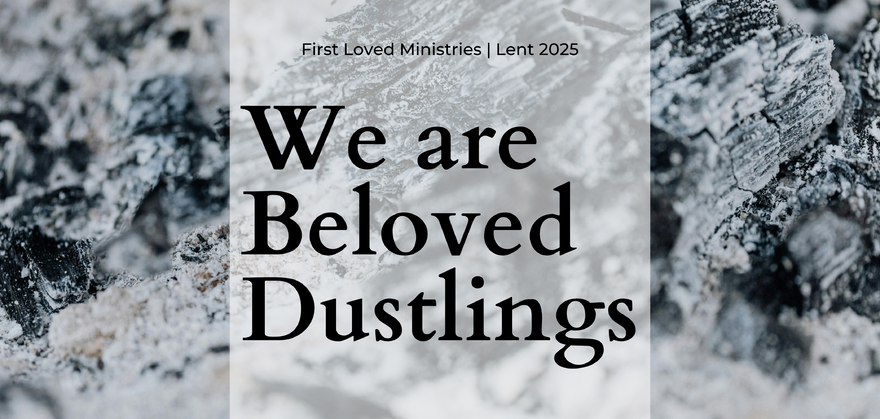
In our Measure teaching, we help you identify and begin the process of dismantling the Conditional Mindset. This is what we internalize after a lifetime of being loved by wounded and broken people who have spent their lifetime being loved this way. It is a belief that "I am only loved for what I deserve." Who gets to decide what we deserve? Whoever is standing in front of us and it’s based on whatever standard they have for what makes a person lovable. If you don’t measure up to their standards, well, too bad.
This is the reality of conditional love; we are always trying to measure up to someone’s standard, and every day is a new and painful struggle. This dynamic weighs us down in all our important relationships, and it’s never just a one-way street. People treat us this way, and we treat others this way. And honestly, sometimes, this feels fair. If we do not receive the treatment that we believe we deserve, it feels fair to withhold affection and consideration. If someone treats us badly, it feels fair to treat them badly. An eye for an eye feels fair when we have been wronged.
But it rarely feels as fair when we are the ones who have done wrong.
When we make a mistake, or are distracted, or just don’t see how our words and actions are impacting another person negatively, we feel like it is very unfair that they would treat us according to what we have done. This experience is a direct result of the Conditional Mindset. It puts the standard of “fairness” into the hands of whoever is standing in front of us. It feels okay when we are the ones in charge of what is or isn’t fair. It doesn’t feel so good when we are not the ones in charge. Being judged feels awful, while judging others might feel appropriate and fair.
This is the best and hardest part of being set free from the Conditional Mindset. We are loved, fully and unconditionally, by the all-powerful, always good, compassionate, and gracious God. We are no longer burdened by the lies that accompany pride or shame that make us believe we are more or less worthy of love because of what we do or don’t do, say or don’t say. This is true for us and the person who we think is less lovable because of what they do or don’t do, say or don’t say. We are released from the judgments that others have put on us, and we also must release the judgments we have passed. Releasing those judgments can feel hard because it can feel unfair. The “yeah, but…” and the “what about…” can get loud. So, how do we recalibrate those thoughts so that we can freely love one another unconditionally?
Paul gives us a clue in Romans 12:1-2, “Therefore, I urge you, brothers and sisters, in view of God’s mercy, to offer your bodies as a living sacrifice, holy and pleasing to God—this is your true and proper worship. Do not conform to the pattern of this world, but be transformed by the renewing of your mind. Then you will be able to test and approve what God’s will is—his good, pleasing, and perfect will."
As we deepen our daily experience of being loved by God, we are more compelled to love one another as we have been loved first. As we reflect on the mercy of the forgiveness of Jesus, the kindness we have been shown first, and the way that our debt (from the wrong and harm we have done) has been paid, our hearts and minds will be renewed. Jesus told us that the Lord is kind to the wicked and the ungrateful, so we are called to be merciful just as our Father is merciful (Luke 6:35-36). The more we experience and meditate on God’s kindness and mercy, the more we are transformed by the renewing of our minds and can break away from the pattern of the Conditional Mindset. Neuroscience has shown us that this is literally true. When we are loved well only under certain conditions, our brains get wired to believe that this is what we should expect and this is how we should treat others. When we are loved well unconditionally, in equal and opposite measure, our neural pathways and synaptic connections are transformed and made new. Being loved, even when we don’t think we deserve it, sets us free and enables us to entrust our standards and judgments to God.
Psalm 103:9-12 reminds us that this has always been God’s heart, “He will not always accuse, nor will he harbor his anger forever; he does not treat us as our sins deserve or repay us according to our iniquities. For as high as the heavens are above the earth, so great is his love for those who fear him; as far as the east is from the west, so far has he removed our transgressions from us.” So hear these love verses personalized for you to enjoy:
Beloved, [insert your name here ____________], I Yahweh, do not keep a record of wrongs and I do not hold a grudge. I am full of mercy and kindness toward you, so I do not treat you differently or withhold my love because of what you have or have not done. My definition of “fair”, “deserve”, and “pay back” is different than yours, so trust me ____________. For as high as the heavens are above the earth, so great is my love for you! Whatever measure you can imagine, it is even greater than that! And as far as the east is from the west, too far to measure, farther still have I removed the burden of your wrong and harm from you.


Comments